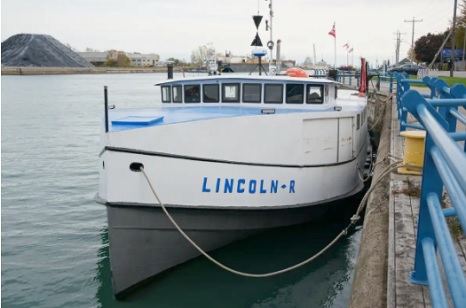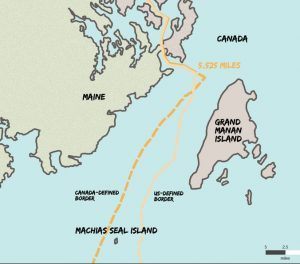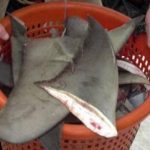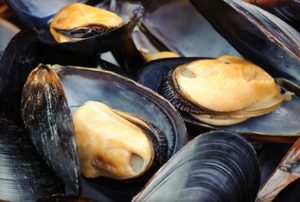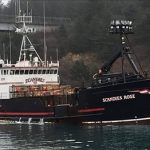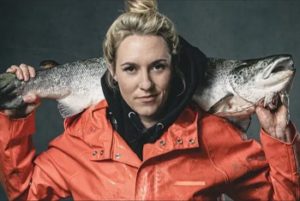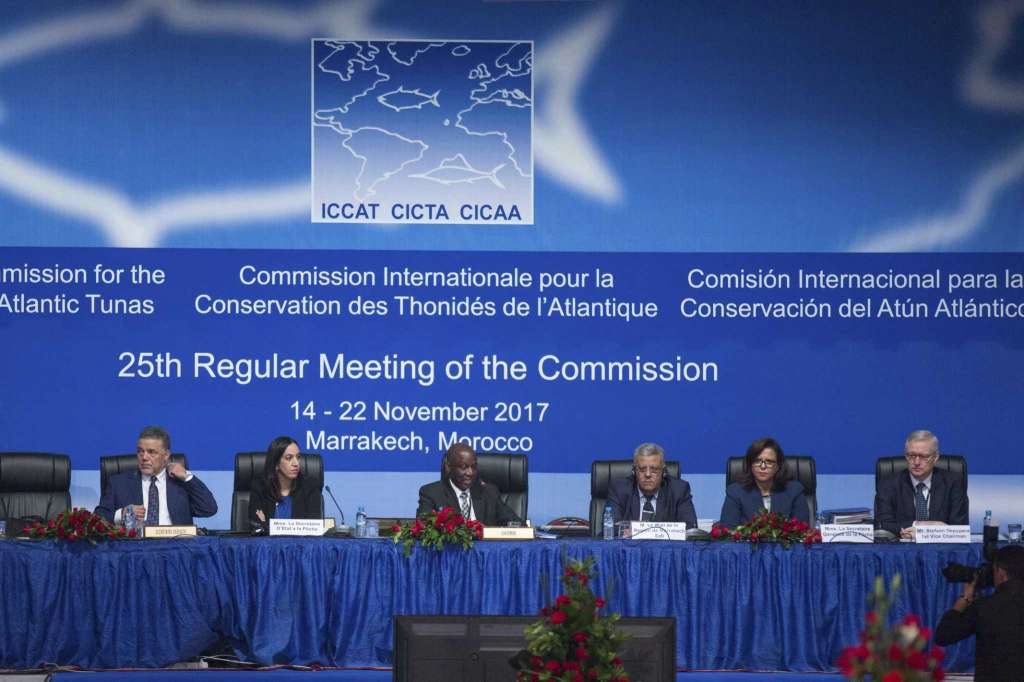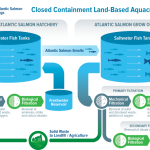Tag Archives: United States
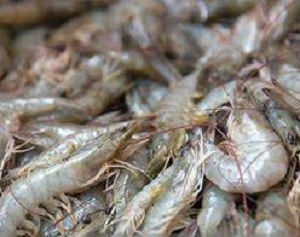
US shuts off Mexico shrimp imports
Mexico said Friday it will try to regain U.S. certification for shrimp exports, after the country lost its registration because of inadequate protections for sea turtles. Mexico’s agriculture department said it will take corrective measures and carry out training to ensure Mexican trawl-net shrimp boats don’t sweep up sea turtles as by-catch. The Department of State said the U.S. ban coincides with the closure of Mexico’s shrimp fishing season. >click to read< 13:30
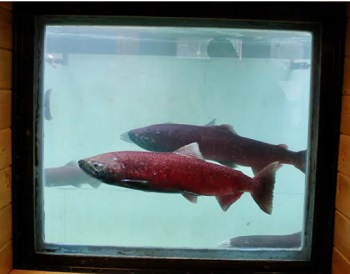
2021 Yukon River Chinook salmon run will likely be small, according to forecast
Somewhere between 42,000 and 77,000 Canadian-origin fish are anticipated to make the journey from the Bering Sea this year, Alaska and Yukon experts told attendees during the Yukon River Panel’s pre-season meeting on Tuesday. The most likely run size would be 57,000, they said. That’s smaller than the pre season outlooks for 2020 and 2019, and both those years ended disastrously when it came to getting enough salmon across the border. Under an international treaty, Canada and the U.S. are supposed to work together to ensure at least 42,500 fish make it to their spawning waters in Yukon. That spawning escapement goal hasn’t been met since 2018, last year only about 33,000 Chinook made it. >click to read< 13:21
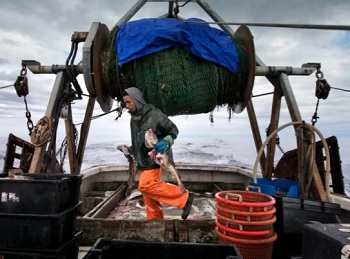
Georges Bank haddock – Canada, U.S. agree to slash quota by 45%
Canada and the United States have agreed to a large quota cut for the haddock stock that straddles their shared fishing grounds on Georges Bank south of Nova Scotia. Committee records from 2019 and 2020 show the Georges Bank haddock population is still healthy, but on the decline as the “extraordinarily strong” population hatched in 2013 is caught or dies off. COVID-19 curtailed or cancelled scientific surveys on Georges Bank in 2020. “We have no analytical model on haddock, had no U.S. surveys,,, >click to read< 21:05
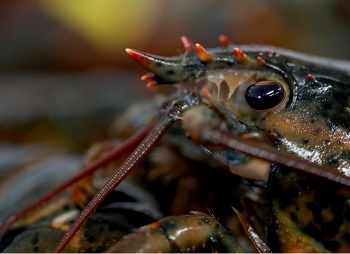
EU backs U.S. lobster trade deal
Thanksgiving just got a little bit better for the Maine lobster industry. The European Union parliament on Thursday approved a mini trade deal with the United States, which includes the elimination of customs duties on U.S. lobster imports. The passage with 638 votes for, 45 against and 11 abstentions was the last major political step for the deal to come into effect. As a result, the 27-nation EU will drop its 8% tariff on U.S. lobsters for the next five years and work to make the move permanent. >click to read< 06:35
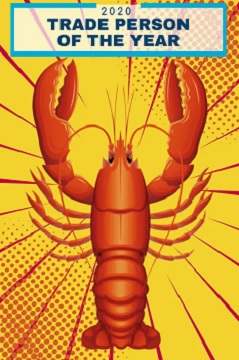
Lobsters Are A Prawn In The Trade Wars
American lobster and lobster fishers got caught in a trade war being fought on multiple fronts. The United States is battling China on one major front and the European Union (EU) on another, but as is typical in trade wars, it’s lobster production in another country that’s winning the war. In this case, Canada. If that weren’t enough, tariffs are the root cause of the trade war, but not in the way you might think. China’s tariffs on U.S. lobsters are in retaliation for President Trump’s China tariffs over intellectual property. The EU didn’t raise its tariffs on U.S. lobster, but rather lowered them on Canadian ones as part of their free trade agreement. In other words, U.S. lobsters were never meant to be the target of either Chinese or EU,,, How the lobster trade war started isn’t nearly as interesting as the efforts to stop it. >click to read< 10:28
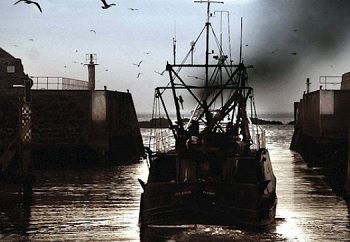
Fishing industry slump demonstrates vulnerability of food security in Coronavirus crisis
Measures are needed to avoid a worldwide Covid-19 slump in agriculture and food production, such as already exists in the fishing industry. Fishing fleets and fish farmers were among the hardest hit by COVID-19, and not just in Ireland. Businesses in the United States and elsewhere supplying high-value food products like lobster and other crustaceans to restaurants in China have also been crippled by the pandemic.,, Demand for seafood slumped dramatically. Many Irish trawlers are now tied up at the piers, with their crews having handed out free fish,,, >click to read< 14:59
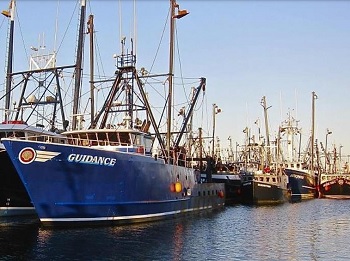
New Bedford Remains Top Money Port in the United States
Scallops continue to be king in the Port of New Bedford. The U.S. Commerce Department on Friday released its 2018 report on commercial fishing. For the 19th consecutive year, the Port of New Bedford was the most lucrative port in the nation, with its total catch of seafood valued at $431 million. Dutch Harbor, Alaska landed the most fish for the 22nd consecutive year, more than 763 million pounds. >click to read< 10:10
Fisheries of the U.S. Report for 2018 Shows Strong Year for Fishermen – According to the Fisheries of the United States report, which is compiled by NOAA using data and analysis not immediately available at the same end of a fishing year, U.S. highest value species groups in 2018 included lobster ($684 million), crabs ($645 million), salmon ($598 million), scallops ($541 million), and shrimp ($496 million). >click to read<
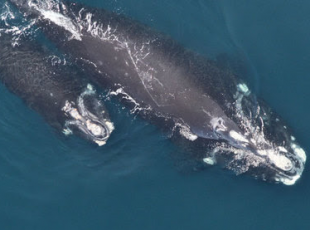
The Risk of Ship Strikes: Maine Congressional Delegation Ask Feds To Shift Focus Of Right Whale Protections
In a letter to top officials at the National Oceanic and Atmospheric Administration (NOAA) this week, the delegation calls on the agency to provide more information about reducing the risk of ship strikes off the United States and Canada – strikes that they say are as much a threat to the whales’ survival as entanglement with lobster fishing gear. >click to read< 10:13
 Most likely Carnival Cruise Lines is responsible for 18+ Right Whale deaths in the past 3 year, at which rate they would soon be extinct – >click to read<
Most likely Carnival Cruise Lines is responsible for 18+ Right Whale deaths in the past 3 year, at which rate they would soon be extinct – >click to read<
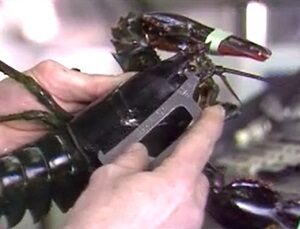
The small change that meant big losses for Nova Scotia lobstermen
A sixteenth of an inch doesn’t seem like much. But it added up to a whole lot for Nova Scotia lobstermen in December 1989. A new law had been passed in the United States that increased the minimum allowable size of lobsters for import, by that seemingly insignificant margin. “That might not sound like much of a change to a non-fisherman,” he explained. “But in reality, it means as much as a quarter-pound increase in weight.” Video, >click to read< 10:37

U.S., China Reach Substantial ‘Phase One’ Trade Deal
The U.S. and China agreed on the outlines of a partial trade accord Friday that President Donald Trump said he and China’s Xi Jinping could sign as soon as next month. As part of the deal, China would significantly step up purchases of U.S. agricultural commodities, agree to certain intellectual-property measures and concessions related to financial services and currency, The agreement marks the largest breakthrough in the 18-month trade war that has hurt the economies of both nations. Importantly, Trump said the deal was the first phase of a broader agreement. >click to read< 16:34
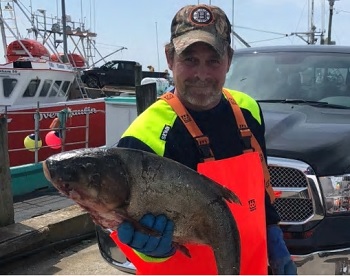
Canada closer to allowing Asian carp as lobster bait, depending on test outcomes
The Canadian Food Inspection Agency says it is prepared to accept invasive Asian carp from the United States as bait for the lobster industry, provided U.S. authorities can meet a number of conditions including proof the carcasses pose no disease threat. “If the U.S. can meet these requirements, Canada is willing to accept the import of dead, eviscerated silver carp for use as bait,” CFIA spokesperson Brian Naud said in a statement. There is interest in both countries in using Asian carp to supply their respective lobster fisheries which are experiencing a bait shortage as traditional sources decline: herring in the United States and mackerel in Canada. The state of Maine is poised to make a decision on Asian carp as a bait source by the end of May. >click to read<11:34
B.C.-led international expedition to probe ailing Pacific salmon stocks
An unprecedented international collaboration could revolutionize salmon science and fisheries management, return forecasting and even hatchery output. Nineteen scientists from Russia, Canada, the United States, Japan and South Korea are set to probe the secret lives of five Pacific salmon species with a four-week grid search and test fishery across the Gulf of Alaska. The expedition begins next week aboard the Russian research ship MV Professor Kaganovsky. “We know virtually nothing about what happens to salmon once they leave near-shore waters in the Salish Sea,” said expedition organizer Dick Beamish. >click to read<13:56
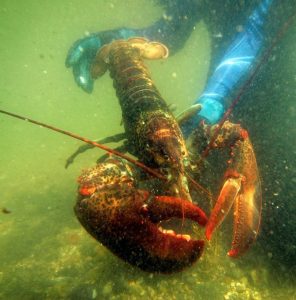
The lobster wars are over. We won
You may recall a few weeks ago when we discussed the coming Lobster Wars involving the United States, Canada and China. (There’s an odd combination for you.) The first component of the conflict has to do with the ongoing dispute between America and the Great White North over who actually owns the “gray area” surrounding the Bay of Fundy off the coast of Maine.,,, It’s the trade war aspect which was of more current interest because it would cut off some of the markets for American fishermen leading to an increase of supply domestically and a cut in demand. >click to read<15:41
Canada’s opening stance for NAFTA talks: Common ground, not confrontation
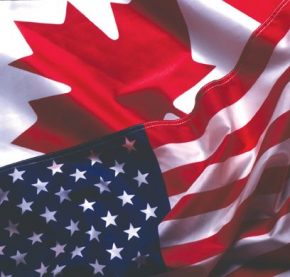 The Canadian government is signalling the approach it intends to take should Donald Trump make good on his promise to renegotiate the North American Free Trade Agreement. Canada’s ambassador to the U.S. is laying out some starting principles such as co-operation instead of confrontation. In a lengthy interview, David MacNaughton expressed his desire to see the countries propose common-ground, common-sense ideas that improve the old agreement instead of flinging out hardball demands that could produce deep, drama-filled bargaining. “We have done an extensive amount of work (to prepare for this),” MacNaughton said in the year-end interview. “We have a good sense of what would be in Canada’s interest…. “(But) the areas we need to focus on — and I think we are focusing on — is where is it not just in Canada’s interest, but in Canada and the United States’ interest… “I think if we’re just blatantly trying to push something that works for us but doesn’t work for them, that’s not going to be… quite as easy.” Read the rest here 17:41
The Canadian government is signalling the approach it intends to take should Donald Trump make good on his promise to renegotiate the North American Free Trade Agreement. Canada’s ambassador to the U.S. is laying out some starting principles such as co-operation instead of confrontation. In a lengthy interview, David MacNaughton expressed his desire to see the countries propose common-ground, common-sense ideas that improve the old agreement instead of flinging out hardball demands that could produce deep, drama-filled bargaining. “We have done an extensive amount of work (to prepare for this),” MacNaughton said in the year-end interview. “We have a good sense of what would be in Canada’s interest…. “(But) the areas we need to focus on — and I think we are focusing on — is where is it not just in Canada’s interest, but in Canada and the United States’ interest… “I think if we’re just blatantly trying to push something that works for us but doesn’t work for them, that’s not going to be… quite as easy.” Read the rest here 17:41
Sweden’s lobster game; stick to soccer
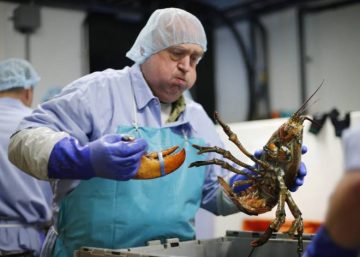 Legendary American soccer goalie Hope Solo was rightly suspended for calling the Swedish national team a “bunch of cowards” after the European side beat the U.S. women’s team in the Rio Olympics last month. Playing the more talented and explosive American side, Sweden played a crafty, intelligent, defensive game for 120 minutes. The result was a scoreless tie after regulation and extra time. The Swedes won the shootout that followed. Today, Nova Scotia’s lobster fishermen may be feeling some sympathy for Solo. For Sweden is clearly playing a defensive game as it attempts to get the European Union to ban imported lobsters from Canada and the United States (which for the most part means Nova Scotia and Maine). Read the Op-ed here 11:12
Legendary American soccer goalie Hope Solo was rightly suspended for calling the Swedish national team a “bunch of cowards” after the European side beat the U.S. women’s team in the Rio Olympics last month. Playing the more talented and explosive American side, Sweden played a crafty, intelligent, defensive game for 120 minutes. The result was a scoreless tie after regulation and extra time. The Swedes won the shootout that followed. Today, Nova Scotia’s lobster fishermen may be feeling some sympathy for Solo. For Sweden is clearly playing a defensive game as it attempts to get the European Union to ban imported lobsters from Canada and the United States (which for the most part means Nova Scotia and Maine). Read the Op-ed here 11:12
US and Canada reject Sweden’s call for lobster ban
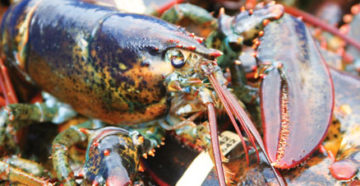 Canada and the United States on Monday rejected Swedish calls for a ban on imports of live American lobsters, saying fears of an invasive species displacing its European cousin are unsubstantiated. Speaking for both countries, Steven Wilson, a deputy director of the National Oceanic and Atmospheric Administration (NOAA), told a news conference that Swedes had “found some evidence that there are lobsters in their waters”. “But those lobsters could not thrive and could not rise to a population that could either pass disease or overcome the native species,” he said. Current evidence points only to lobsters escaping, not a full blown invasion, he added. “There just isn’t enough scientific information that gives you the impression that this is something that could take hold , which is important in the invasive-species standard internationally,” Read the rest here 11:24
Canada and the United States on Monday rejected Swedish calls for a ban on imports of live American lobsters, saying fears of an invasive species displacing its European cousin are unsubstantiated. Speaking for both countries, Steven Wilson, a deputy director of the National Oceanic and Atmospheric Administration (NOAA), told a news conference that Swedes had “found some evidence that there are lobsters in their waters”. “But those lobsters could not thrive and could not rise to a population that could either pass disease or overcome the native species,” he said. Current evidence points only to lobsters escaping, not a full blown invasion, he added. “There just isn’t enough scientific information that gives you the impression that this is something that could take hold , which is important in the invasive-species standard internationally,” Read the rest here 11:24
U.S. Coast Guard Unveils a New Model for Cooperation Atop the World
 The United States Coast Guard announced Friday the creation of a new international forum for cooperation in the Arctic. Signed at the United States Coast Guard Academy in New London, Connecticut, the new Arctic Coast Guard Forum will include coast guards or similar agencies from Canada, Denmark, Finland, Iceland, Norway, Sweden, Russia and the United States. “Today’s historic Arctic Coast Guard Forum represents a critical step forward in our collective efforts to promote safety, security and environmentally responsible maritime activity in the Arctic,” said Coast Guard Commandant Admiral Paul Zukunft. Read the rest here 10:50
The United States Coast Guard announced Friday the creation of a new international forum for cooperation in the Arctic. Signed at the United States Coast Guard Academy in New London, Connecticut, the new Arctic Coast Guard Forum will include coast guards or similar agencies from Canada, Denmark, Finland, Iceland, Norway, Sweden, Russia and the United States. “Today’s historic Arctic Coast Guard Forum represents a critical step forward in our collective efforts to promote safety, security and environmentally responsible maritime activity in the Arctic,” said Coast Guard Commandant Admiral Paul Zukunft. Read the rest here 10:50
US and Russia will sign a bilateral deal next week aimed at fighting illegal fishing.
 The United States and Russia will sign a bilateral deal next week aimed at fighting illegal, unreported and unregulated (IUU) fishing, US Deputy Assistant Secretary for Oceans and Fisheries Ambassador David Balton told Sputnik on Monday. “Next week in Portland, Oregon delegations to the United States and Russia will get together for our annual meeting on fisheries and we will be signing a bilateral agreement to combat IUU fishing,” Balton added that the cooperation between the United States and Russia in the Arctic remains “good and strong” despite the current tensions in the relations between the two countries. Read the rest here 17:34
The United States and Russia will sign a bilateral deal next week aimed at fighting illegal, unreported and unregulated (IUU) fishing, US Deputy Assistant Secretary for Oceans and Fisheries Ambassador David Balton told Sputnik on Monday. “Next week in Portland, Oregon delegations to the United States and Russia will get together for our annual meeting on fisheries and we will be signing a bilateral agreement to combat IUU fishing,” Balton added that the cooperation between the United States and Russia in the Arctic remains “good and strong” despite the current tensions in the relations between the two countries. Read the rest here 17:34
Canada appears poised to sign international Arctic fish deal
“We can confirm that we are planning to attend a meeting in Norway with other 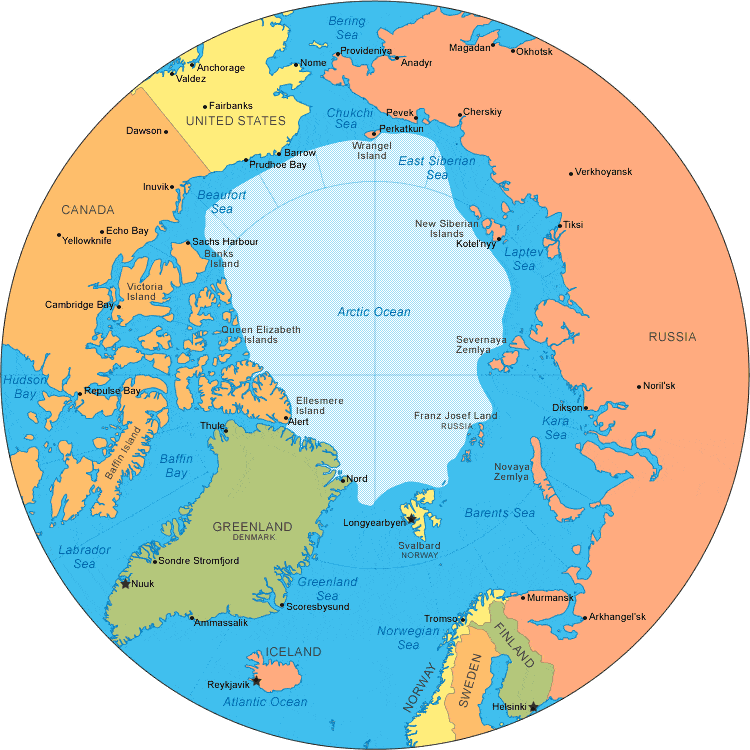 coastal states to discuss further measures against unregulated high-seas fishing in the central Arctic Ocean,” Carole Saindon wrote in an email.”Details of the results of those discussions will be released at the conclusion of the meeting.”Canada, the United States, Russia, Denmark and Norway reached an interim agreement in February 2014 to work toward protecting Arctic waters beyond the 200-kilometre territorial limit of their respective shores, an area the size of the Mediterranean Sea. Read the rest here 08:11
coastal states to discuss further measures against unregulated high-seas fishing in the central Arctic Ocean,” Carole Saindon wrote in an email.”Details of the results of those discussions will be released at the conclusion of the meeting.”Canada, the United States, Russia, Denmark and Norway reached an interim agreement in February 2014 to work toward protecting Arctic waters beyond the 200-kilometre territorial limit of their respective shores, an area the size of the Mediterranean Sea. Read the rest here 08:11
The Future of Fishing in the Central Arctic
 Increasingly, it’s the future of fisheries that is taking center stage in the geopolitical discussions that come with planning for the future Arctic. This was made evident on January 15 and 16, 2015, when 40 Arctic experts from the United States, Canada, Russia, China, Iceland, Denmark, and Greenland travelled to Tongji University in Shanghai to attend the first “Roundtable on Central Arctic Ocean Fisheries Issues.” Read the rest here 18:21
Increasingly, it’s the future of fisheries that is taking center stage in the geopolitical discussions that come with planning for the future Arctic. This was made evident on January 15 and 16, 2015, when 40 Arctic experts from the United States, Canada, Russia, China, Iceland, Denmark, and Greenland travelled to Tongji University in Shanghai to attend the first “Roundtable on Central Arctic Ocean Fisheries Issues.” Read the rest here 18:21
United States continues global leadership to address illegal, unreported, and unregulated fishing
 In its 2015 biennial report to Congress on illegal, unreported, and unregulated fishing (IUU), NOAA has identified six nations — Colombia, Ecuador, Mexico, Nigeria, Nicaragua, and Portugal — as engaging in the practice. IUU fishing and seafood fraud undermine international efforts to sustainably manage and rebuild fisheries, and creates unfair market competition for fishermen playing by the rules, like those in the United States. Read the rest here 15:07
In its 2015 biennial report to Congress on illegal, unreported, and unregulated fishing (IUU), NOAA has identified six nations — Colombia, Ecuador, Mexico, Nigeria, Nicaragua, and Portugal — as engaging in the practice. IUU fishing and seafood fraud undermine international efforts to sustainably manage and rebuild fisheries, and creates unfair market competition for fishermen playing by the rules, like those in the United States. Read the rest here 15:07
Pacific Island nations secure $90m tuna deal with United States
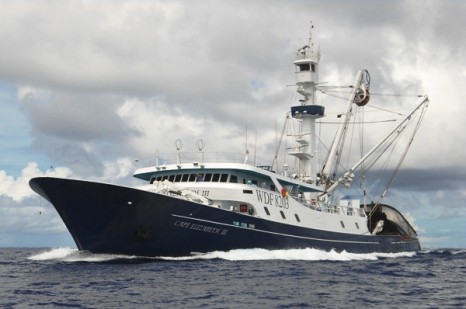 Pacific Island countries and the United States have reached a $90 million tuna deal, which is believed to be the world’s most lucrative fishing access agreement. The deal was secured in the final minutes of a three-day negotiating session in Hawaii. Under the agreement,,, Read more here 07:12
Pacific Island countries and the United States have reached a $90 million tuna deal, which is believed to be the world’s most lucrative fishing access agreement. The deal was secured in the final minutes of a three-day negotiating session in Hawaii. Under the agreement,,, Read more here 07:12
Pacific Rim nations agree to halve take of dwindling bluefin tuna
 Japan, South Korea and the United States agreed Thursday on new annual limits on the catch of dwindling young bluefin tuna in an effort to double the population within a decade. The conservation plan announced by the Western and Central Pacific Fisheries Commission after a meeting in the western Japanese city of Fukuoka aims to boost the depleted stock by counting the accidental catch of young bluefin tuna by long-net trawling as part of the regulated take. Read the rest here 11:27
Japan, South Korea and the United States agreed Thursday on new annual limits on the catch of dwindling young bluefin tuna in an effort to double the population within a decade. The conservation plan announced by the Western and Central Pacific Fisheries Commission after a meeting in the western Japanese city of Fukuoka aims to boost the depleted stock by counting the accidental catch of young bluefin tuna by long-net trawling as part of the regulated take. Read the rest here 11:27
Global powers sign declaration on sustainable fishing
ATHENS) – Officials from some of the world’s top fishing powers signed a declaration in Greece on Friday to promote sustainable management of fish stocks. The signatories — the EU, United States, Japan, Philippines, Colombia and Indonesia — pledged to support measures to address fishing overcapacity. Read more here eubusiness.com 14:08
Bermuda, the Azores, Monaco, United Kingdom and the United States signed a declaration committing to the conservation of the Sargasso Sea
 Government representatives from Sweden, Turks and Caicos Islands, British Virgin Islands, the Netherlands, Bahamas and South Africa expressed support for the declaration, together with five international organizations including IUCN, the Oslo and Paris Commission from the neighboring North-east Atlantic regions, the International Seabed Authority, the Inter-American Convention for the Conservation of Atlantic Sea Turtles and the Convention on Migratory Species. Read more here scoop.au 21:01
Government representatives from Sweden, Turks and Caicos Islands, British Virgin Islands, the Netherlands, Bahamas and South Africa expressed support for the declaration, together with five international organizations including IUCN, the Oslo and Paris Commission from the neighboring North-east Atlantic regions, the International Seabed Authority, the Inter-American Convention for the Conservation of Atlantic Sea Turtles and the Convention on Migratory Species. Read more here scoop.au 21:01
Canada agrees to work to prevent fishing in High Arctic until there’s more study
Canada and four other Arctic nations have agreed to work toward a deal to block commercial fishing in the central Arctic Ocean until more is known about the potential of the resource. The agreement with the United States, Russia, Denmark and Norway was reached late Wednesday in Nuuk, Greenland, after three days of talks Read more here 18:56
Pew: The Pacific 6: Chinese Taipei, South Korea, Japan, Indonesia, China and the United States are responsible for 80% of the annual catch of big eye tuna,
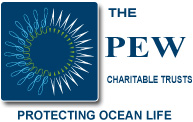 The accompanying analysis, by Pew Charitable Trusts attending the Western and Central Pacific Fisheries Commission meeting in Cairns Australia this week, also documents the destructive methods they use to dominate the $USD 7billion industry. The 43 member countries of the body responsible for the world’s largest tuna fishery – the Western and Central Pacific Fisheries Commission – will negotiate from today on an action plan to end overfishing of bigeye tuna by 2018. [email protected] 09:23
The accompanying analysis, by Pew Charitable Trusts attending the Western and Central Pacific Fisheries Commission meeting in Cairns Australia this week, also documents the destructive methods they use to dominate the $USD 7billion industry. The 43 member countries of the body responsible for the world’s largest tuna fishery – the Western and Central Pacific Fisheries Commission – will negotiate from today on an action plan to end overfishing of bigeye tuna by 2018. [email protected] 09:23






